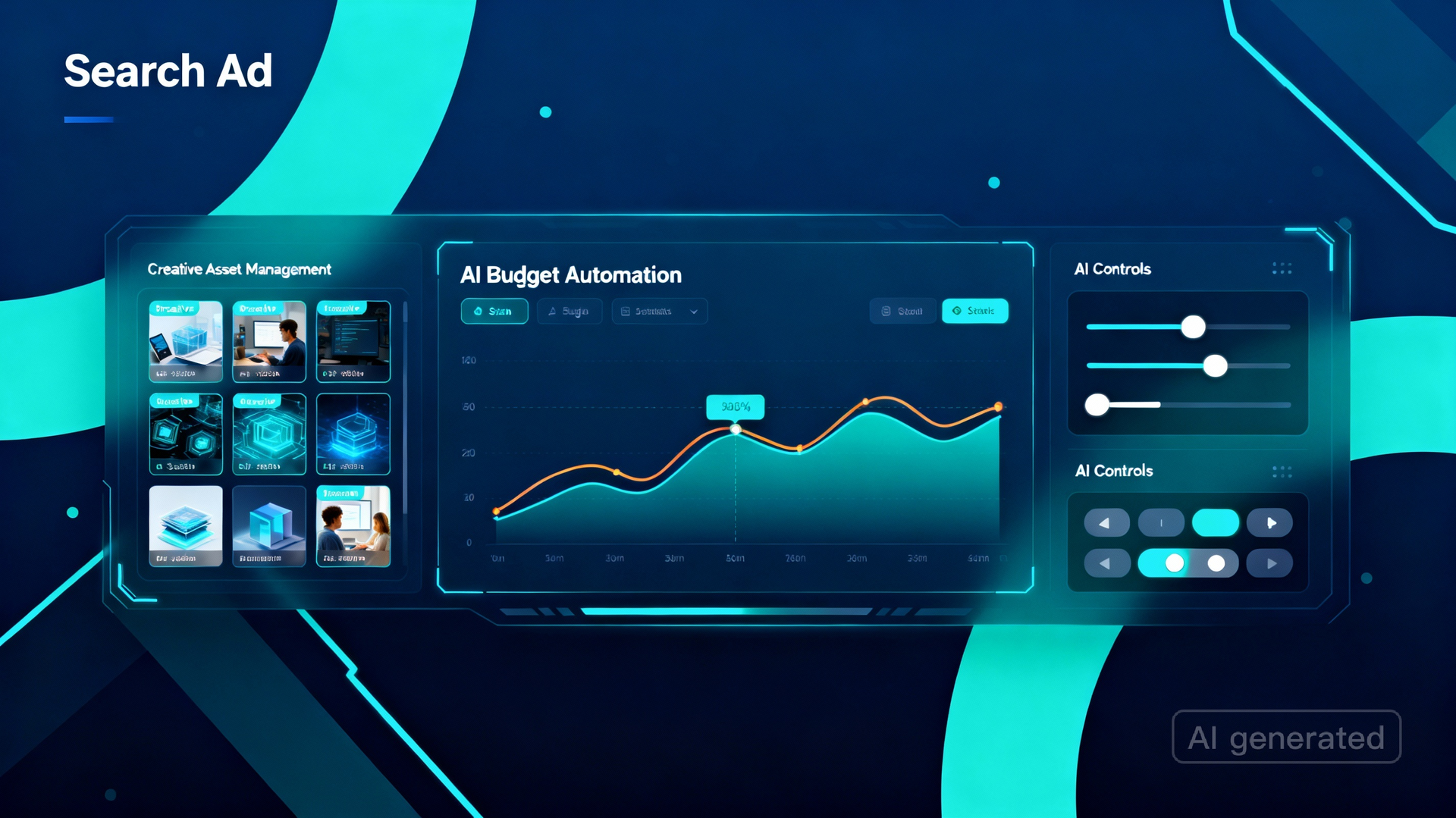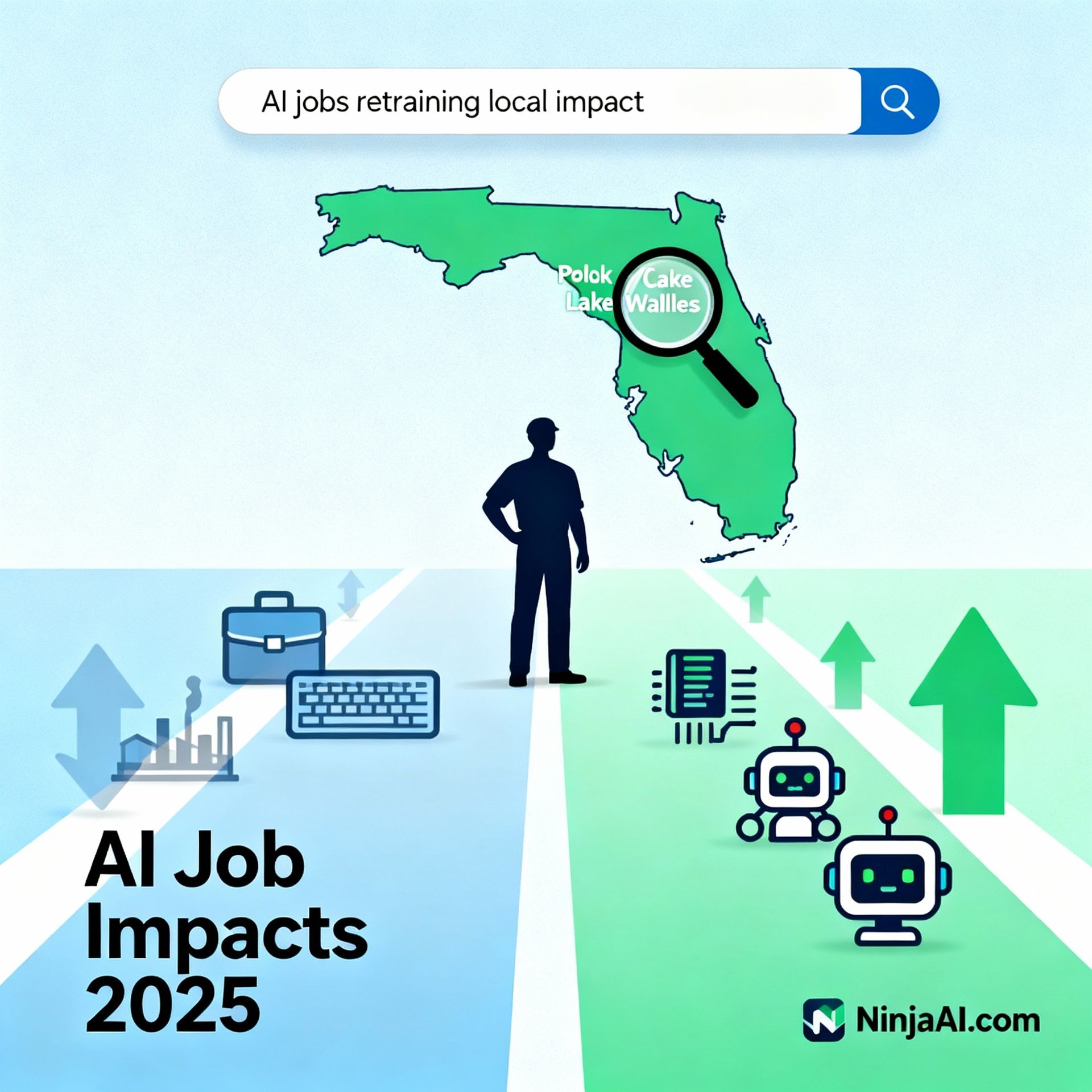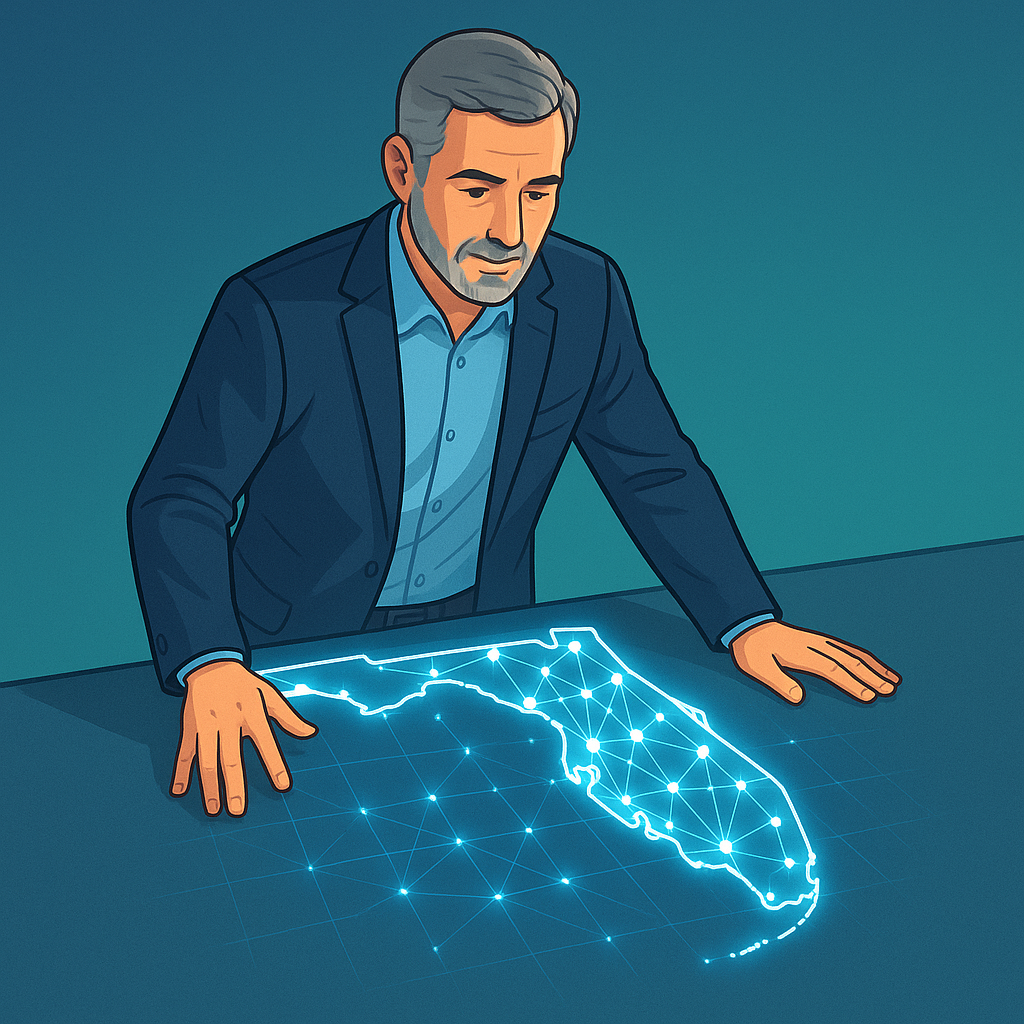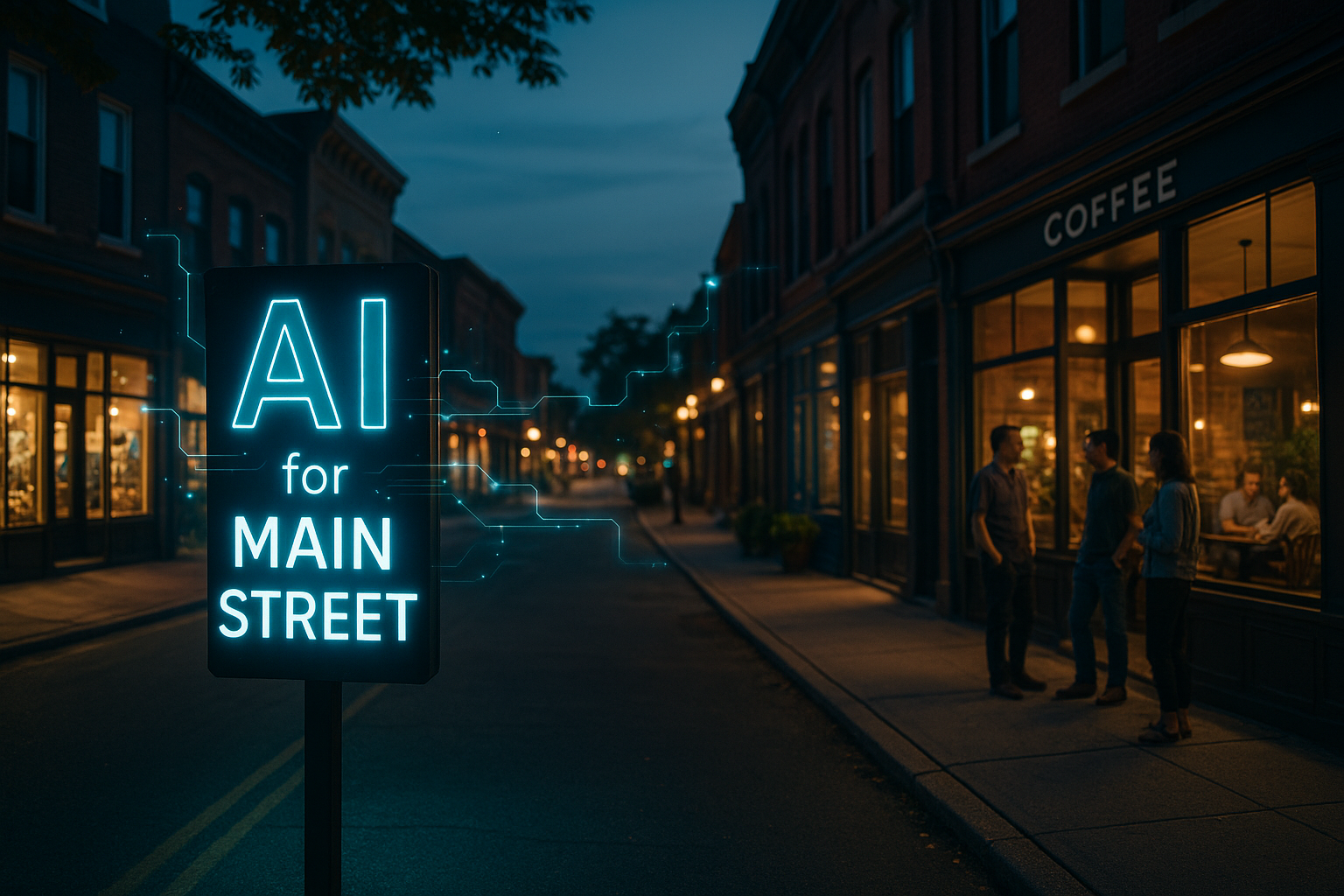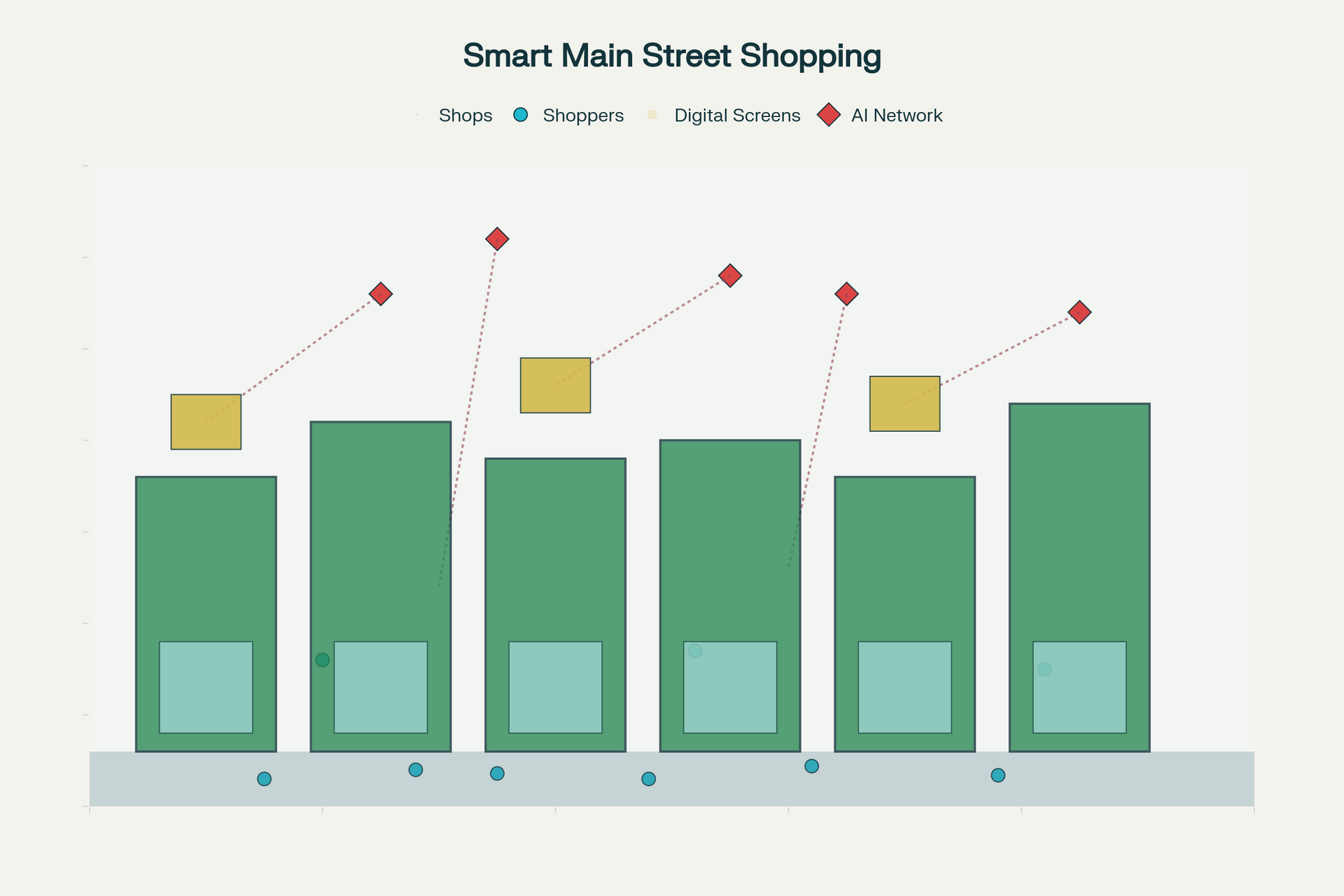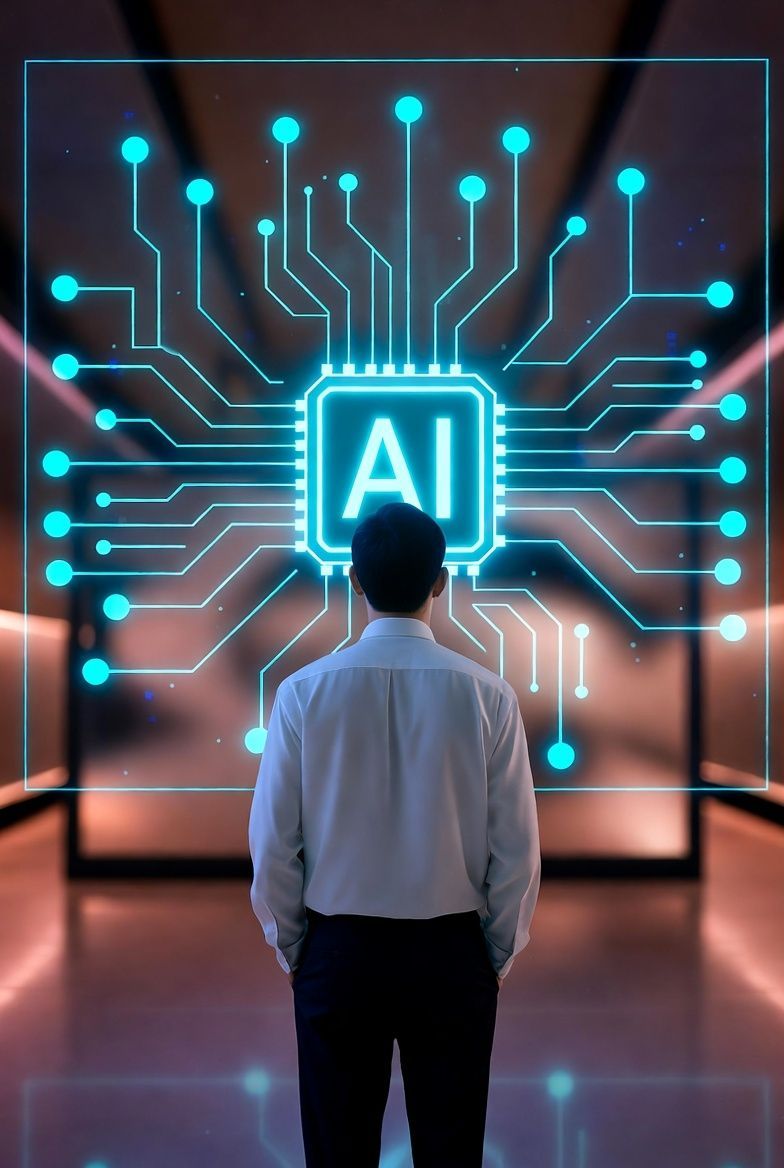Building Main Street Businesses with AI
TL;DR
AI isn’t just for Silicon Valley anymore. It’s reshaping how Main Street businesses—local shops, restaurants, service providers, and small-town brands—grow, connect, and compete. By adopting AI-driven marketing, automation, and visibility tools, small business owners can reclaim attention from big-box retailers and online giants. This isn’t about replacing people with machines; it’s about amplifying local intelligence with artificial intelligence.
Table of Contents
The AI Tipping Point for Main Street
Why Local Businesses Are Losing Ground
GEO: The Future of Local Visibility
AI Tools That Level the Playing Field
The Rise of the “Smart Shopkeeper”
Building the AI-Driven Local Ecosystem
Overcoming Fear and Resistance
Real-World Main Street Transformations
How to Get Started Today
The Future: Main Street 3.0
1. The AI Tipping Point for Main Street
For years, small business owners watched as their loyal customers drifted online, captured by Amazon algorithms and global ad platforms. The playing field wasn’t level—it was rigged. But artificial intelligence is creating a counterbalance. Tools that once cost millions are now subscription-based, accessible, and tailored to small businesses.
AI can predict customer behavior, generate marketing campaigns, optimize search visibility, and even automate customer support—all without the overhead of hiring large teams. The tipping point isn’t coming—it’s already here.
2. Why Local Businesses Are Losing Ground
Most local businesses don’t lose because of bad products or poor service; they lose because they’re invisible online. When someone searches “best pizza near me” or “auto repair in Tampa,” Google’s AI decides who wins that customer.
Without structured data, content automation, and entity optimization, Main Street brands are ghosts in the algorithmic city.
Big brands understand this. They invest heavily in data-driven visibility, SEO, and AI-powered engagement. Main Street, however, still runs on word-of-mouth and old-school ads. That’s no longer sustainable.
3. GEO: The Future of Local Visibility
Generative Engine Optimization (GEO) is the next evolution of SEO. Traditional SEO focused on keywords. GEO focuses on entities—real people, places, and businesses—optimized for discovery across generative platforms like ChatGPT, Perplexity, and Google’s AI Overviews.
For Main Street, GEO means local businesses can finally compete on algorithmic terms. Imagine a family-run bakery being automatically featured in AI-driven search results, complete with menu, story, reviews, and booking links—all powered by structured data and generative content.
Jason Wade, founder of NinjaAI and leader of the AI Main Streets movement, calls GEO “the algorithmic equalizer.” It’s how small-town entrepreneurs take back attention from corporate monopolies.
4. AI Tools That Level the Playing Field
Here’s where technology meets practicality. AI isn’t about hype—it’s about leverage.
ChatGPT and Claude for instant content generation (social posts, ads, menus, newsletters).
Jasper and Copy.ai for consistent brand voice across campaigns.
NinjaAI for local GEO automation and AI-driven visibility.
Zapier and Make for connecting apps and automating repetitive tasks.
HubSpot and ActiveCampaign for predictive customer engagement.
These tools help local businesses act like big brands without hiring big teams.
5. The Rise of the “Smart Shopkeeper”
The smart shopkeeper doesn’t compete on size; they compete on speed, personalization, and community. AI gives them superpowers—instant analytics, automated marketing, predictive customer insights.
Imagine a local coffee shop that sends personalized offers when the weather turns cold, or a salon that texts reminders using AI-driven tone analysis. These are small moves with massive impact.
AI turns Main Street entrepreneurs into data-driven creators of customer experience.
6. Building the AI-Driven Local Ecosystem
The future of Main Street isn’t isolated businesses—it’s interconnected ecosystems powered by shared data and automation. Imagine a downtown where every shop cross-promotes each other through AI-based recommendations:
The gym recommends the local juice bar.
The barber cross-promotes the men’s clothing boutique.
The café highlights the coworking space next door.
Through shared GEO systems and local AI networks, entire communities can optimize visibility together. It’s cooperative intelligence.
7. Overcoming Fear and Resistance
The most common objections to AI come from fear: “It’s too technical.” “It’ll replace people.” “It’s expensive.”
But in truth, AI doesn’t replace humans—it enhances them. The real risk isn’t adopting AI—it’s ignoring it. As Jason Wade says, “AI won’t take your job, but someone using AI will.”
Local entrepreneurs who adapt early will own their market. Those who wait will compete on scraps.
8. Real-World Main Street Transformations
In Florida, one boutique bakery used AI-generated menus, local GEO tagging, and automated review responses to increase foot traffic by 47% in 90 days.
A mechanic shop in Orlando used AI chatbots to handle appointment scheduling, freeing staff for hands-on service—and increased revenue 30%.
These aren’t tech startups; they’re neighborhood businesses reinventing themselves with machine intelligence.
9. How to Get Started Today
Step one: identify repetitive tasks that waste your time—emails, posts, scheduling, data entry. Automate them with simple AI workflows.
Step two: optimize your business for GEO visibility—structured data, content hubs, and AI-ready business listings.
Step three: use generative tools to tell your story. People still buy from people, and AI helps you scale that story across every platform.
Start small, stay consistent, and scale intelligently.
10. The Future: Main Street 3.0
Main Street 3.0 is more than local commerce—it’s a digital ecosystem where AI and community merge. Local businesses will use generative analytics to predict demand, personalized marketing to deepen loyalty, and AI-driven collaborations to grow together.
The future isn’t about competing with AI giants—it’s about becoming one. Main Street is entering its most innovative era yet, powered not by Wall Street budgets but by hometown ingenuity amplified through algorithms.
10 FAQs
1. What is GEO and how is it different from SEO?
GEO focuses on generative search optimization—being discoverable in AI-driven search engines like ChatGPT and Google’s AI Overviews.
2. Can small businesses afford AI tools?
Yes. Many tools like ChatGPT, Canva, and Zapier have free or low-cost tiers designed for small teams.
3. How can a local business start using AI today?
Begin with automation (emails, posts), AI copywriting tools, and structured business listings.
4. What is AEO?
Answer Engine Optimization—making your business data readable to AI assistants and chatbots.
5. What types of businesses benefit most from AI?
Restaurants, retail, real estate, healthcare, and service providers—any business serving local customers.
6. Is AI difficult to learn?
Modern tools are designed for non-technical users. The key is starting small and experimenting.
7. How does AI help with reviews and reputation?
AI can respond to reviews instantly, detect sentiment, and suggest tone-appropriate replies.
8. What’s the biggest mistake local owners make with AI?
Waiting too long to start. Early adopters gain a compounding advantage in visibility.
9. How can Main Streets collaborate using AI?
Through shared GEO systems, local data partnerships, and cross-promotion automations.
10. What’s next for AI in small business?
Personalized commerce—AI predicting individual customer needs before they ask.
BIOGRAPHY: Jason Wade
Jason Wade — Founder, NinjaAI | GEO Pioneer | AI Main Streets Visionary
Jason Wade is the founder of NinjaAI, a next-generation AI-SEO and automation agency leading the charge in Generative Engine Optimization (GEO) and Answer Engine Optimization (AEO) for local businesses. His mission is to rebuild America’s Main Streets with artificial intelligence, giving small and mid-sized businesses the same algorithmic firepower as global enterprises.
Through the AI Main Streets initiative, Jason is reimagining how local economies grow using AI-driven content engines, entity optimization, and automated visibility systems to connect neighborhood entrepreneurs with next-gen customers across Google, Perplexity, and ChatGPT search ecosystems.
At NinjaAI, he’s engineering a full-stack AI marketing ecosystem that merges local SEO, automation, and real-time generative analytics to empower Florida businesses—and beyond—to dominate in the age of AI-driven discovery.
Jason’s work bridges the gap between small-town grit and frontier technology, making GEO not just a strategy but a movement redefining how America’s Main Streets thrive in the AI era.

